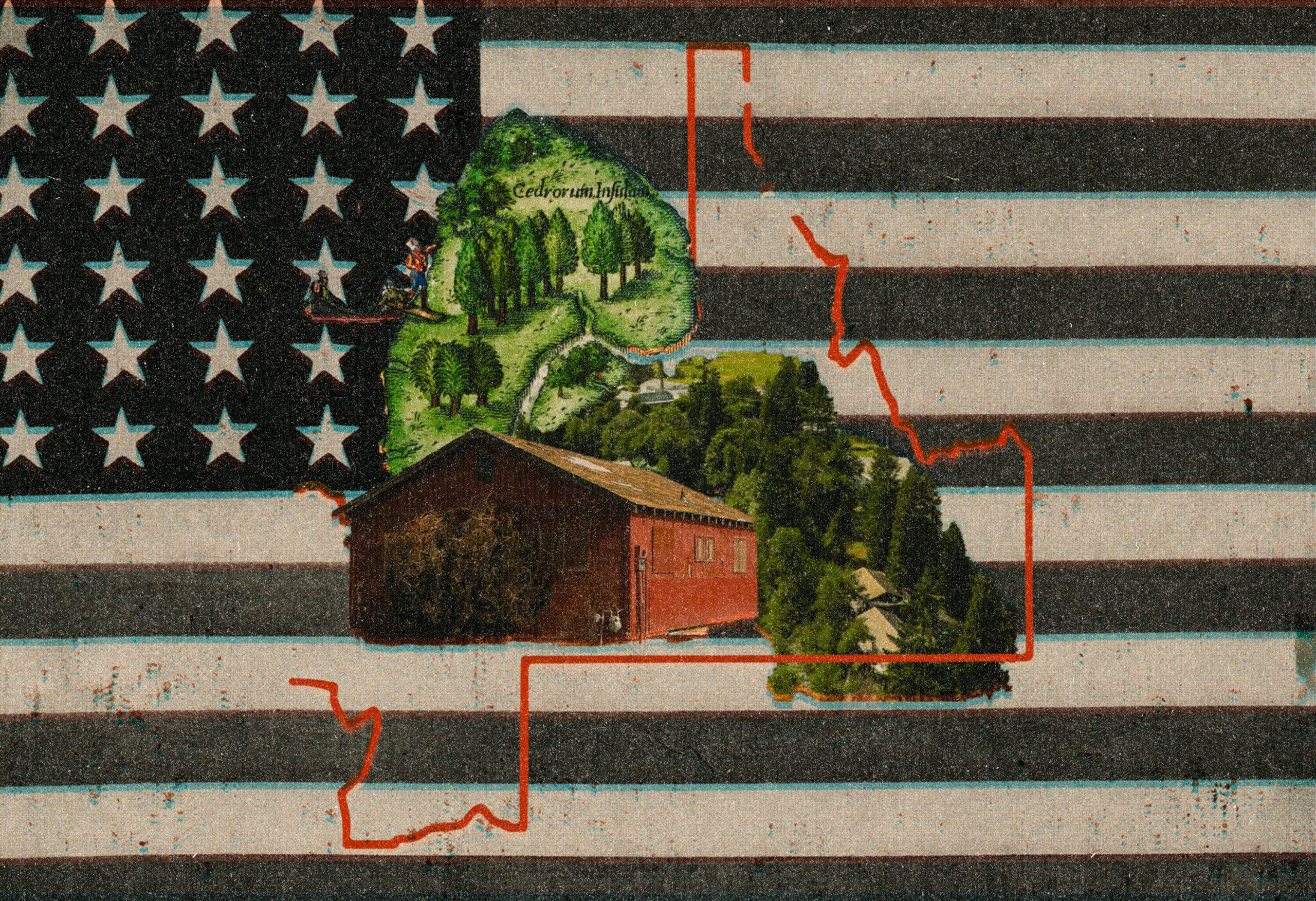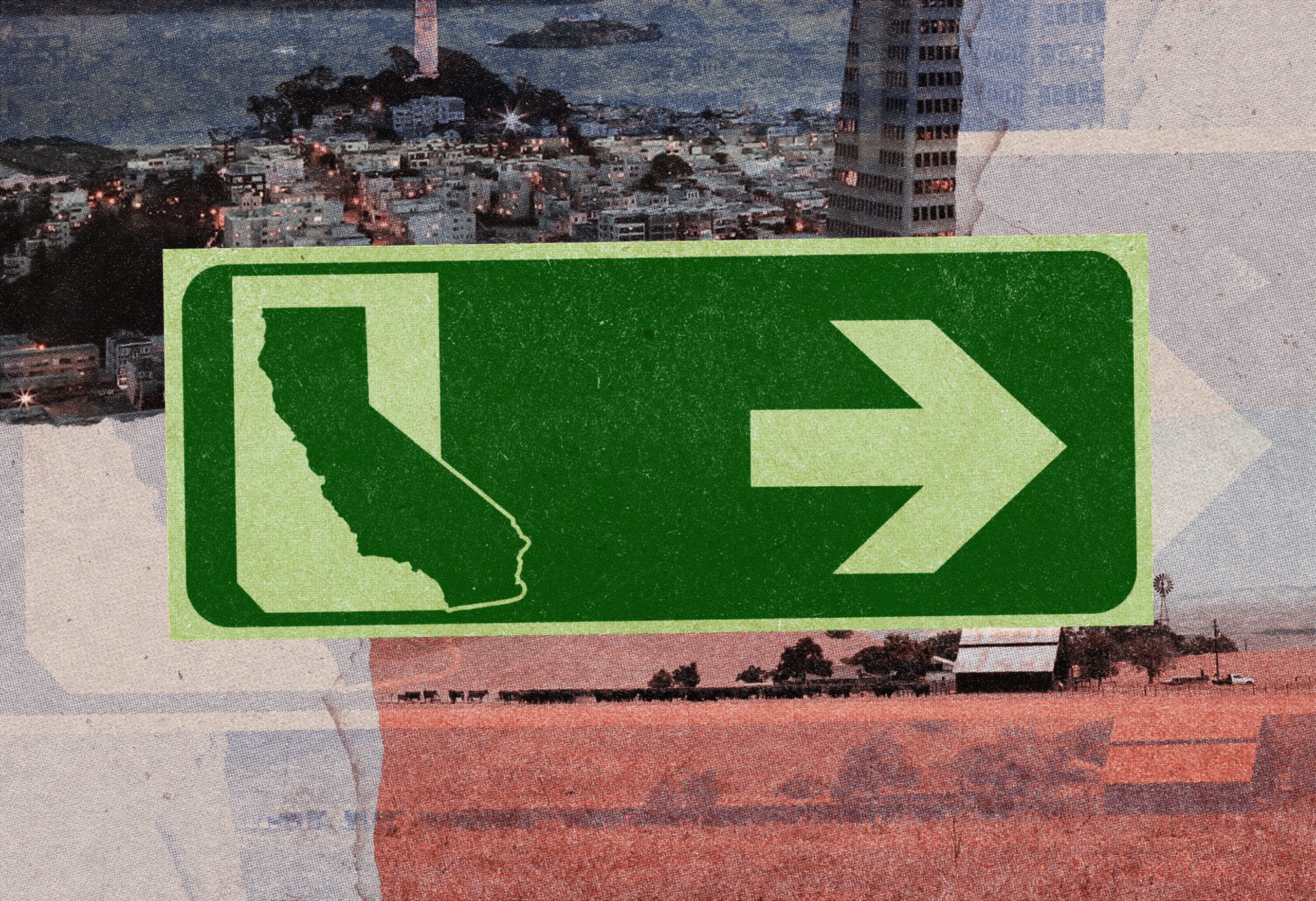A movement grows to upsize the Gem State.
To Save the Union, Salutary Neglect

State and Federal officials must give local governments room to breathe.
Self-government is a moral imperative for human beings in community, and our national and state governments are not well-suited to fulfilling it. The principle of human freedom—a principle expressed in one way by the Lockean Declaration of Independence—is in tension with the distant, unrepresentative nature of these governments.
This does not mean that our state and national governments aren’t useful or needed in some form; just that these entities may not deserve all of the weighty authority, power, and moral status we associate with the term “government.” By constraining, suffocating, and sometimes even crushing the more local governments that are usually better positioned to merit the term, centralized and concentrated power at the state and national levels hinders local government from providing for local needs in ways that are reflective of and responsive to local communities. The more the state and national governments do, the less is left to be done by local governments.
The tendency to centralization and away from localism is reinforced by online media. The on-demand availability of news from around the country, and the fostering of virtual connections with people in ways unconstrained by the limits of space, both work to shift attention away from the local communities within which genuine self-government is possible. The result is that self-government has become all but extinct in the land of the free.
State and national governments encourage political polarization, magnifying the divisions between opposing perspectives and sowing conflict by incentivizing the presentation of debates in oversimplified and abstract terms suitable for rapid consumption by huge audiences. Large-scale government is for political discourse what McDonald’s is for food; as the scale goes up, the quality goes down. The decrease in quality, though, is accompanied in both cases by an increase in convenience and attractiveness. Both appeal to our human desire for immediate gratification and temporary comfort. Everybody loves a Big Mac—except the human body. And everybody loves simple side-taking in politics, no matter how bad it is for our civic health.
The problem of political polarization has deep roots, is apparently intractable in modern societies, and will likely get worse in the coming years. National and state politics draw sustenance from the sources of polarization, and feed them in turn. Democrats and Republicans, liberals and conservatives, might live in the same country, but they live in different worlds. This is a serious problem for a country that professes to be a constitutional republic.
How can the disintegration of American civic fabric, and the hastening eclipse of the American experiment in limited self-government, be arrested? The factors I mentioned above—the centralization of money, power, and public consciousness (a lamentable parody of “the American mind”), along with the collapse of a common perspective for dialogue and cooperation—are too entrenched and powerful to be addressed in partial or piecemeal fashion. What we need in the U.S. is a new era of “salutary neglect”: an era in which state and national governments retreat in order to make way for the development of local freedom, just as the British monarchy left its North American colonies alone for most of the 17th and 18th centuries.
American democracy was distinguished from the beginning by the vibrancy of its local self-government. This is what drew Alexis de Tocqueville’s attention in the early 19th century and led him to devote his two-volume work to this subject. Tocqueville glimpsed in the New England township governments something absolutely new in his world: the spectacle of human communities really governing themselves, and doing so (at least at times) peacefully and effectively. Self-government can only begin at the local level—radiating outward from the individual rather than inward from some external power—and it can only grow and thrive in the absence of a more powerful, more distant government. Communal self-government begins with individual self-government, and is extinguished by top-down government.
This is, moreover, a zero-sum game. Different governments with the same citizens inevitably compete with one another, and centralized governments usually possess the advantage of superior resources. Madison’s argument in Federalist #46 about the superior position of the state governments vis-à-vis the national government was plausible for about three years after the adoption of the Constitution. Ever since, the national government has been increasing in power and resources relative to the state governments, and both have been increasing in power and resources relative to county and municipal governments. Alexander Hamilton’s dream of an American commercial “empire” had already won the day in the 1790s, despite his party’s subsequent political defeats.
A new era of salutary neglect would enable Americans once again, as Thomas Paine put it in Common Sense, to “begin government at the right end.” It would also enable Americans to defuse the terrible polarization that has led to our ongoing political dysfunction. It has become common knowledge that political division in the U.S. maps neatly by geography—not by North and South, and not by state, but by urban and rural counties and electoral districts. Renewed self-government at the county level would allow all Americans to live according to laws that align with their political principles and beliefs. Abortion and gay marriage can be legal in San Francisco County and illegal in Shasta; taxes and government services can be high in Cook County and low in La Salle.
Counties can do this by committing to the achievement of fiscal independence from the state and national governments. Unfortunately but invariably, it all starts with money. This may appear an impossible task, but it can be made more possible by the creation of associations of counties that are all working toward this goal simultaneously. Such associations of contiguous or otherwise similar counties with similar population densities can form beneficial economic cooperatives to assist in the process of fiscal independence. Eventually, such county chains could extend from the Pacific to the Atlantic, and from Mexico to Canada. About 97% of U.S. land area is considered “rural” by population density measures. Associations of rural counties with similar political principles, beliefs, and practical concerns could occupy the vast majority of the U.S., working together to provide for their economic and other common interests.
This is what a true renewal of the American experiment in self-government might look like. It may also be the only way forward for a society that seems to have lost any discernible common principles. As one of my students recently put it, the application of American principles of human freedom and equality has mostly been a “hypothesis on hiatus” from the beginning; a revitalization of local self-government through increased county independence can hasten its long-awaited return to American reality.
The American Mind presents a range of perspectives. Views are writers’ own and do not necessarily represent those of The Claremont Institute.
The American Mind is a publication of the Claremont Institute, a non-profit 501(c)(3) organization, dedicated to restoring the principles of the American Founding to their rightful, preeminent authority in our national life. Interested in supporting our work? Gifts to the Claremont Institute are tax-deductible.
A political quake to break up California is just what residents could need.
It’s time to split the Empire State into three autonomous regions.



